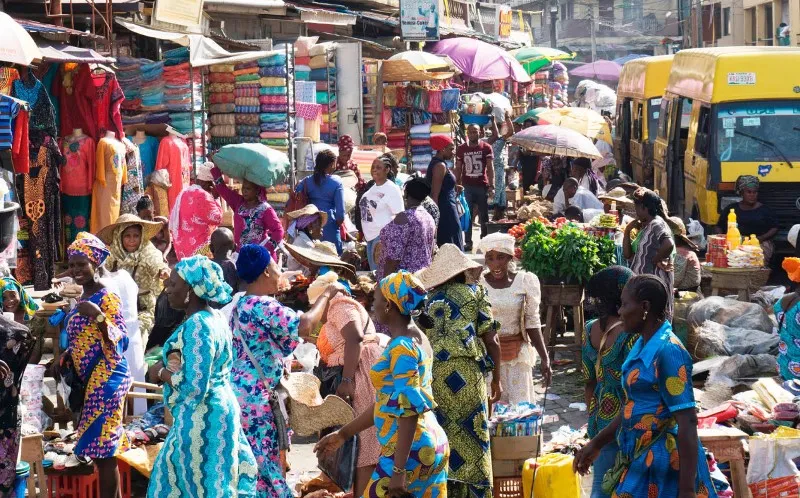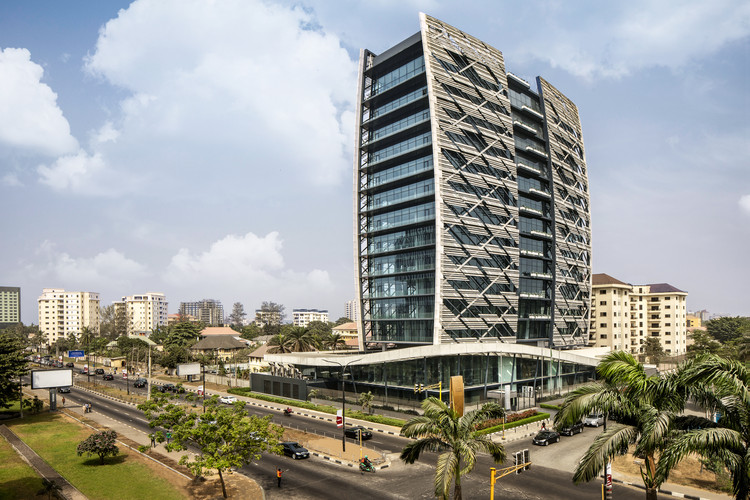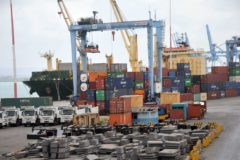As Nigeria’s federal government expands its tax net to the informal sector, market women question the feasibility of the plan and worry about multiple taxation.
Wemifin Oluwaseyi embodies the unflappable spirit of many Lagosians. In her roadside stall in Ogba Market–more accurately described as a show glass shielded with a huge umbrella–she sells pastries, the kind that everyone who’s lived in Lagos can instantly recognise: deep-fried doughnuts with no jam, and meat pies that have more flour than beef. On the best days, it’s a tough business.
As I stop to chat with her, customers order doughnuts and sausage rolls in the scorching heat. Oluwaseyi shares that her average daily profit is ₦1,000, and it’s common for her to make losses. Whether or not business is good, there are several taxes she has to pay. A ₦100 daily local government tax for selling in the market, ₦200 on Thursdays and Fridays to the Lagos state agency officials, Kick Against Indiscipline (KAI). “KAI adds to our problems, and we don’t even know what the money is used for,” Wemifin told TechCabal. But pay she must.
Traders like Wemifin have to pay these multiple levies or face the brute force of these tax collectors. “We have to give them the token so we can have peace. If we don’t give them, we will not have peace,” Itunu Adebayo, another trader, added.
Wemifin and Adebayo are part of Nigeria’s large informal economy. Despite the informal economy’s significant contribution to GDP, workers are subjected to multiple taxation. There are often questions about whether these taxes are remitted to the appropriate authorities, and many taxpayers feel like the government provides no services in return for collecting these taxes. Nigeria’s Federal Inland Revenue Service (FIRS) is trying to change that.
Is Nigeria’s tax policy more strain on informal workers?
This week, Nigeria’s Federal Inland Revenue Service (FIRS) announced the Value Added Tax (VAT) Direct Initiative, a way for the federal government to collect value-added taxes from the informal sector and reduce multiple taxation. To make this work, the federal government will partner with the Market Traders Association of Nigeria (MATAN) to collect and remit VAT from their members—about ₦40 million— using a unified systems technology.
Section 15 of the VAT Act has a threshold of ₦25 million for compliance with VAT obligations. This means that several petty businesses would be excluded from paying the tax. Similarly, the federal government exempted 20 essential food items, sanitary towels, medical services, aircraft spare parts, machinery, plane tickets, and tuition fees from the 7.5% VAT to keep the cost of living from rising. This new VAT Direct Initiative is designed to save market traders from double taxation while integrating the informal sector into the tax system.
The market women have a trust deficit
While the plan to help informal sector workers avoid multiple taxes is excellent, many are interpreting it as an attempt to introduce new taxes. Traders, who spoke to TechCabal, believe the federal government’s harmonisation of taxes won’t stop other agencies in the market from taxing them daily. With low patronage due to poor purchasing power and inflation, many are pessimistic about the federal government’s moves.
Earlier in the year, Adebayo says she had to pay back taxes worth ₦8,300 to the local government so her children could gain admission to secondary school. According to Adebayo and Wemifin, the local government and KAI should remit the monies levied on them to government coffers. But what’s most crucial to them is for local governments and their agencies to stop multiple tax collections.





















